Royal Canadian Navy
The following information was
taken from BR 67 Manual of Seamanship, 1937, Volume 1 (of two volumes),Canadian
edition 1940 (10m-9-40).
Petty officers and
men, whether dressed as seamen or not, wear the badges denoting rating and
conduct on the left arm, and badges denoting their non-substantive rating or
special qualification on their right arm.
Petty officers
(confirmed) wear jackets with gilt buttons instead of jumpers; these jackets
are single-breasted for working dress and double-breasted for No. 1 dress.
Chief petty officers
wear similar jackets, with the addition of three large gilt buttons across each
sleeve. Chief petty officers do not wear any good conduct badges, but wear
badges denoting their own non-substantive rate or special qualification on the
collar of their jackets. Artificer chief petty officers wear no collar badges.
Masters-at-arms wear
a frock coat and sword for No. 1 dress on board ship for Sunday Divisions,
during inspections, etc.
Badges of Rating Worn on the Left Arm
 |
| Petty Officer |
 |
| Leading Seaman and other leading ratings (these badges—Petty Officer and Leading Seaman and other leading ranks—are worn above the good conduct badges) |
 |
| Good Conduct Badges |
Distinguishing Badges Worn On Right Arm
And, in the case of
chief petty officers, on the front of the collars of their jackets.
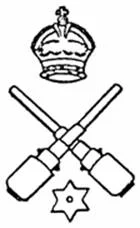 |
| Gunner's Mate |
 |
| Captain of Gun 1st Class |
 |
| Captain of Gun 2nd Class (the rating of Captain of Gun is being allowed to die out) |
 |
| Director Layer |
 |
| Gunlayer |
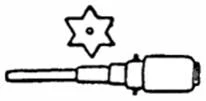 |
| Chief Petty Officer, Petty Officer, and Leading Seaman S. G. (not being Gunlayer or Gunner's Mate) and Seaman Gunner |
 |
| Range-taker 1st Class |
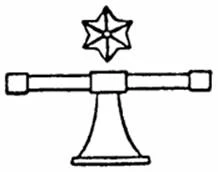 |
| Range-taker 2nd Class |
 |
| Torpedo Gunner's Mate |
 |
| Torpedo Coxswain |
 |
| Leading Torpedo Man |
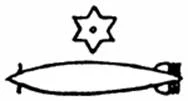 |
| Chief Petty Officer, Petty Officer, and Leading Seaman S. T. and Seaman Torpedo Man |
 |
| Diver (worn on right cuff in similar position to good shooting badge) |
 |
| Telegraphist Air Gunner |
 |
| Visual Signalman 1st Class |
 |
| Visual Signalman 2nd Class (Chief Petty Officer and Petty Officer) |
 |
| Visual Signalman 2nd Class (ratings below Petty Officer) |
 |
| Visual Signalman 3rd Class |
 |
| Trained Operator V/S |
 |
| Signalman, not T. O. (V/S), Ordinary Signalman and Signal Boy |
 |
| Wireless Telegraphist 1st Class |
 |
| Wireless Telegraphist 2nd Class (Chief Petty Officer and Petty Officer) |
 |
| Wireless Telegraphist 2nd Class (ratings below Petty Officer) |
 |
| Wireless Telegraphist 3rd Class |
 |
| Trained Operator (W/T) |
 |
| Telegraphist not T.O. (W/T), Ordinary Telegraphist and Boy Telegraphist |
 |
| Chief Petty Officer and Petty Officer Photographer |
 |
| Leading Photographer |
 |
| Photographer |
 |
| Submarine Detector Instructor |
 |
| Higher Submarine Detector |
 |
| Submarine Detector |
 |
| Physical and Recreational Training Instructor 1st Class |
 |
| Physical and Recreational Training Instructor 2nd Class |
 |
| Surveying Recorder |
 |
| Mechanician |
 |
| Chief Stoker and Stoker Petty Officer |
 |
| Leading Stoker and Stoker 1st Class |
 |
| Stoker 2nd Class |
 |
| Chief Armourer and Armourer |
 |
| Armourer's Mate and Crews |
 |
| Chief Shipwright |
 |
| Chief Petty Officer Artisan, Shipwrights and Artisans 1st to 4th (Confirmed) Classes |
 |
| Shipwrights and Artisans 4th (Acting) and 5th Classes |
 |
| Master-at-Arms |
 |
| Regulating Petty Officer |
 |
| Supply Rating |
 |
| Writer |
 |
| Cook |
 |
| Officer's Cook |
 |
| Officer's Steward |
 |
| Sick Berth Attendant |
 |
| Laboratory Assistant |
 |
| Masseur |
 |
| Operating Room Assistant |
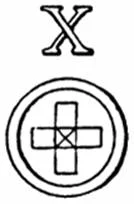 |
| X-Ray Assistant |
 |
| Chief Sailmaker and Sailmaker |
 |
| Sailmaker's Mate |
 |
| Bugler |
 |
| Good Shooting Badge (worn by all marksmen 1.5 inches above the point of the right cuff of serge jumpers or from the end of sleeve of jackets or jumpers without cuffs). Good Shooting Badges are worn for twelve months from date of receipt of badge, or until the wearer again undergoes an annual course if under twelve months. |
 |
| Chief Petty Officers |
 |
| Confirmed Petty Officers with over one year's service as Petty Officer |
 |
| Petty Officers not dressed as Seamen with under one year's service as Petty Officer, and other ratings who wear Class III uniforms |
 |
| Hospital Attendants |



































































